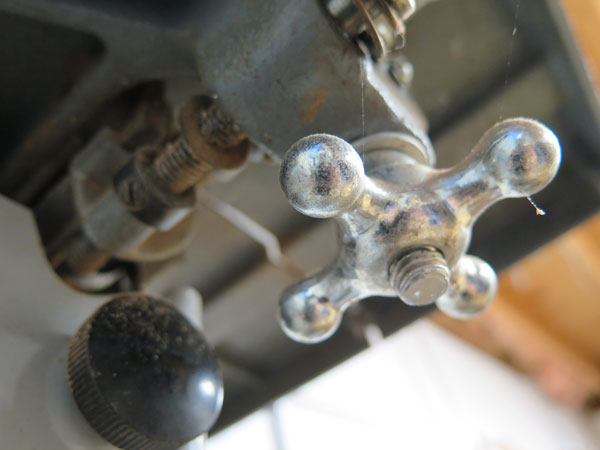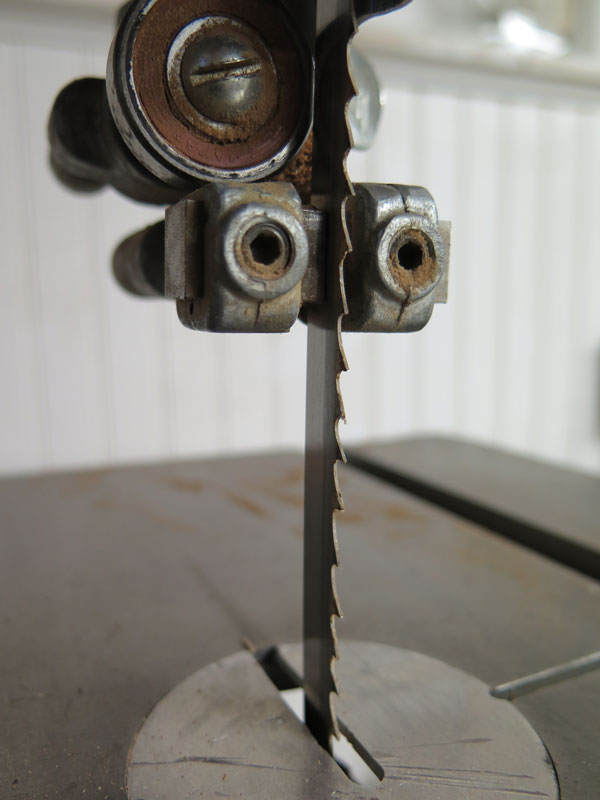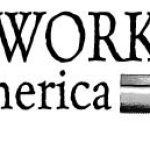We may receive a commission when you use our affiliate links. However, this does not impact our recommendations.
For experienced woodworkers, it’s easy to ignore tool reviews and say: “I just buy the brands that have served me well.”
But what if you know little about the different brands? When I was growing up, Skil made fantastic circular saws. Black & Decker made good drills. Craftsman put its name on some good machinery. Delta was unassailable on the quality of its table saws and band saws.
Are those statements true today?
For even the veteran woodworker, shopping by brand is a moving target. In the last 25 years, many brands have risen or fallen because of changes in the global marketplace. A Powermatic 12” planer from 1994 is not the same machine as one made in 2014.
I’ll give you that some brands have stuck to their guns. Makita still rules the cordless drill market. Hitachi still (for the most part) makes good miter saws. Bosch’s jigsaws are outstanding. And Black & Decker’s battery-operated tape measure is just as good as it was five years ago.
I propose that today your best bet is get your hands dirty and stop – stop – shopping online. If you go to a store and pick up every handplane or every router on display, you will have a pretty good idea of what feels cheap and what feels good. Yes, it takes more work. You might have to travel.
But that will get you about halfway there.
What gets you the rest of the way? Knowing what is important about that particular kind of tool and what is not important. Some of this is open to interpretation, but mostly it’s not.
For example, what is important about a simple bevel-edge chisel? Most magazine reviews focus on edge retention. (Full disclosure: I am guilty of writing some of those edge-retention reviews in my early days.) Edge retention is low on my list. I should be able to chop out the dovetails for a couple drawers before resharpening. But I don’t need the edge to outlast my grandkids.
Instead, I want a chisel that is both comfortable to hold and lightweight. Those are the two most important qualities. I want a chisel that is not top-heavy – most plastic-handled chisels are handle-heavy and tip while you chop with them. And I want thin side-bevels. Thick side bevels bruise the work while chopping out tails. If a chisel meets those basic criteria (few do) then I’m OK with it.
One could make a list of these critical qualities for every tool and machine on the planet (it would make an excellent book). What’s important on a power jointer? That it holds its settings, both for the fence and the table parallelism. Other stuff is secondary, tertiary or stupid-ary.
How about a table saw? Having adjustments that are easy to manipulate to permit clean cuts. Plus a fence that locks hard and is adjustable in three axes. A guard system that is unobtrusive. A dust collection system that will prevent the machine from self-destructing.
What I look for in a tool review is an author who can identify what is important, focus on those qualities and compare the tool in question to its competitors.
That’s actually not asking for much. It’s a much easier approach than evaluating 10 table saws for how flat their tops are (a fairly idiotic metric for the most part) or determining which saw has .003” arbor runout vs. 004” (runout is kinda silly, except in the extreme). But it does take someone who is willing to turn his or her back on decades of tool reviews and their traditional format.
This is where I’m supposed to say: That’s me! I’m the guy!
I’m not the guy. I did my time reviewing tools. I made dumb mistakes while doing it. I wrote some stuff I’m not proud of. And I edited some stuff that should never be read again. Today I’d rather build birdhouses than set up 10 table saws or sharpen 100 chisels.
That sounds rather hopeless. What is a woodworker to do?
— Christopher Schwarz
Here are some supplies and tools we find essential in our everyday work around the shop. We may receive a commission from sales referred by our links; however, we have carefully selected these products for their usefulness and quality.











Chris, your candor in owning your past mistakes shows admirable integrity. Writing this series demonstrates penance for those past minor sins. Thanks for what you’re doing.
— Bradley
Heh, well what a lot of us obviously do is listen to the latest version of Schwarz. Is that up to version 102.2 now? Ever hear of the “Schwarz Effect?” Yes, we are obviously listening.
For sure, with the exception of what you write, interpreting reviews is an art form. A black art form many times.
I read the tool reviews mainly to find out what new wrinkles have come to market. I started down the hand tool road several years ago and have been learning how the tools work, which leads me to appreciate some of the twists that been put on old tool designs that make them a more outstanding tool and more user friendly. But we must remember not to blame our tools if the job does not come out correctly, it is usually the users fault.
All good stuff. BUT, the main reasons I read reviews are: I don’t have reasonable access to much more than the big box stores; I’m not that much of an expert; they are fun to read. Many years ago I really liked Consumer Reports, but discovered that their criteria often differed from mine. Even so, they almost always provided some useful insight. I seldom need the “best”, but I sure don’t want to end up with junk.
@thisoldworkshop.com we strive to review tools and give a indepth evaluation of the tools we test. As a independent site we are able to give honist evaluation of a tool but we dont have the budget to buy every tool in a class and compare then so we evaluate each tool for specks how long a charge lasts how many screws you can drive in a charge how fast from dead to full charge. Then there is subjective findings we try very hard to avoid the pitfalls you have outlined we have a criteria for our tests that we stick to . Then we try to write a review people will read and hope they find it helpful in their tool search . Then off to the editor to fix gramer and syntax. After reading these posts our criteria will get tweaked a bit the one thing we dont want to be is an infomercial. Currently we are working on several head to head tests reviewing a dozen drill drivers is more than twelve times the work and for our small staff it takes weeks to do right. For us this series of articles was a great tool we will borrow some of these ideas to increase the value of our reviews. THANKS CHRIS
What is it about woodworkers that they always want to complicate things. Figure out what you need the tool to do, Shop around, buy a tool, win some…lose some.
David B.
I sometimes wonder whether tool reviews have any impact at all, because so many woodworkers have made up their minds, and nothing as insignificant as cold, hard facts are going to budge them. Some comments I’ve read include such things as, “I only buy Bosch, because DeWalt is made by Black and Decker, and Black and Decker is crap because they make kitchen appliances!” (Guess who else makes kitchen appliances?) And in every discussion of brands, you will find the die-hard loyalist who defends Craftsman by pointing out that he has a Craftsman widget that he bought fifty-seven years ago, and it’s still going strong—completely oblivious to the fact that things change in fifty-seven years.
Thanks for the insight Chris.
I love my old PM 65 table saw, but I wouldn’t buy a new PM anything. As is frequently the case with hand tools, I’ve found the WWII era and before machine equipment to be superior to pretty much anything put out today. Heck, my Oliver 260 saw even has a true riving knife… Only beat the CPSC to the punch by 60 years, give or take.
Like many others, I drank the vintage machinery koolaid and haven’t looked back.
I’m usually pretty good about comparing products for function and quality and not worrying about brand name; however, I will admit that I do sometimes get stuck in brand name limbo, especially when the item I’m looking at is from a company I’ve never heard of before.
Over the last five or six years I have set myself up with a nice workshop, largely influenced by your advice on tools and how to use them. As a result I spend more money on ‘some’ tools than I thought I should have, but I am certain ‘less’ money overall than I would have. I am so grateful to have learned about Lie Nilson and Lee Valey/Vertias tools.
The best thing about good quality tools is that they raise your game, you owe it to them to do good work with them. My cuts are straighter and my surfaces are smoother as a result.
Your best advice yet though; “get your hands dirty and stop – stop – shopping online.” One would save so much money following this advice.
Thanks for the tool review information, Chris. Something to look for in future tool reviews and something to consider when I write about a tool, as well.
Your photos remind me the last thing I need to do to fix my bandsaw is replace the broken stop assembly under the table so I can easily return it back to perpendicular if I ever tilt it off 90. Thanks for that, too.
Cheers,